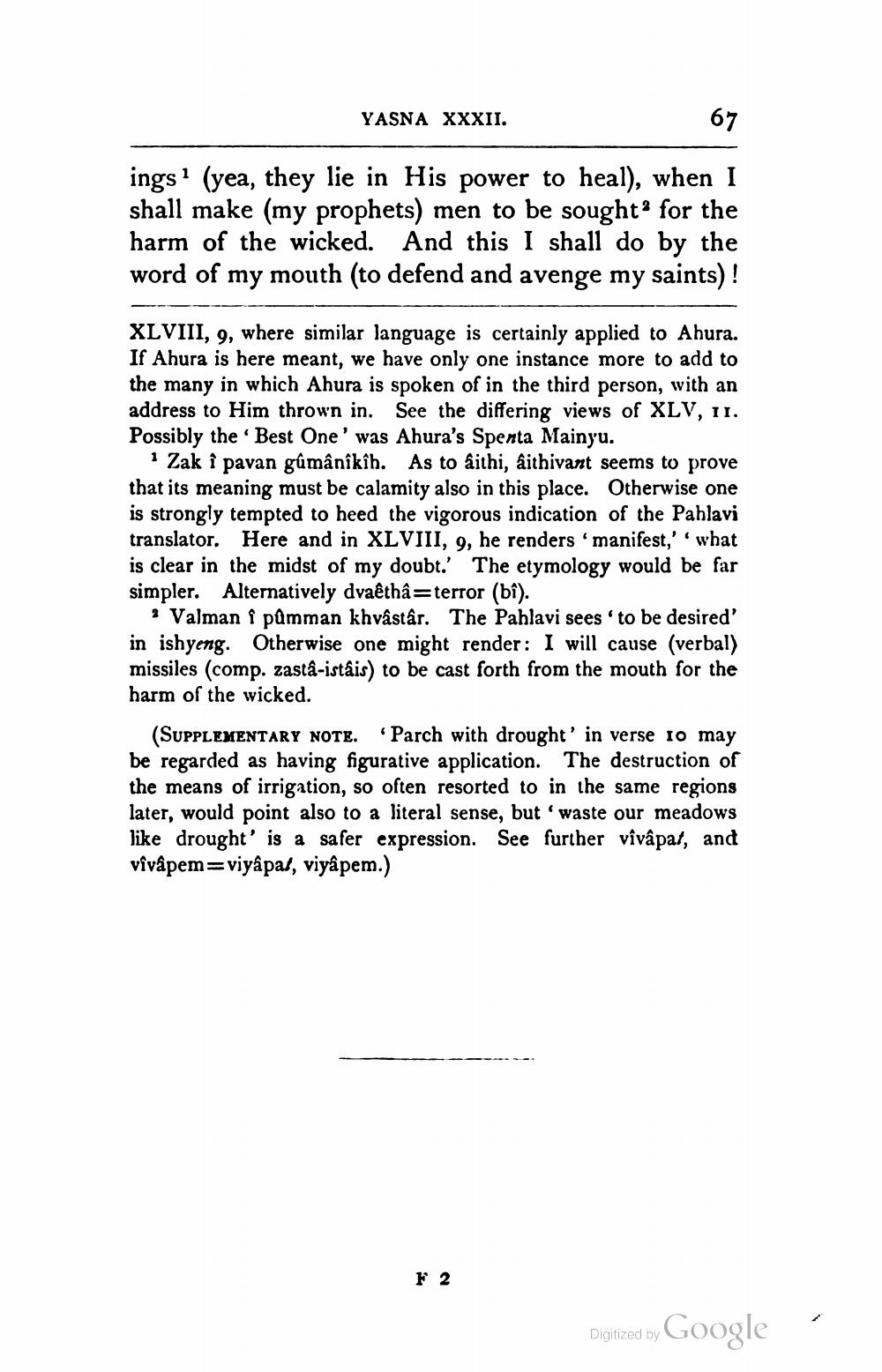________________
YASNA XXXII.
ings? (yea, they lie in His power to heal), when I shall make (my prophets) men to be sought for the harm of the wicked. And this I shall do by the word of my mouth (to defend and avenge my saints)!
XLVIII, 9, where similar language is certainly applied to Ahura. If Ahura is here meant, we have only one instance more to add to the many in which Ahura is spoken of in the third person, with an address to Him thrown in. See the differing views of XLV, 11. Possibly the Best One' was Ahura's Spenta Mainyu.
Zak i pavan gúmânikîh. As to aithi, aithivant seems to prove that its meaning must be calamity also in this place. Otherwise one is strongly tempted to heed the vigorous indication of the Pahlavi translator. Here and in XLVIII, 9, he renders 'manifest,'' what is clear in the midst of my doubt.' The etymology would be far simpler. Alternatively dvaêthâ=terror (bî).
? Valman i pûmman khvâstâr. The Pahlavi sees to be desired' in ishyeng. Otherwise one might render: I will cause (verbal) missiles (comp. zasta-istais) to be cast forth from the mouth for the harm of the wicked.
(SUPPLEMENTARY NOTE. 'Parch with drought' in verse 1o may be regarded as having figurative application. The destruction of the means of irrigation, so often resorted to in the same regions later, would point also to a literal sense, but waste our meadows like drought' is a safer expression. See further vîvâpal, and vivåpem=viyâpal, viyâpem.)
F2
Digitized by
Digitized by Google




